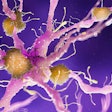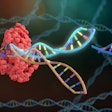
A collaboration has been launched in the U.K. to build multicell models of the human brain deemed vital to develop novel therapies for neuronal and psychiatric disorders.
King's College London (KCL) scientists and synthetic biology company bit.bio say they will share the scientific protocols and methods, once developed, with researchers worldwide. The College’s Institute of Psychiatry, Psychology & Neuroscience (IoPPN) will build the multicell models using bit.bio’s ioCells.
Multicell models are considered key to revealing some of the more complex aspects of a disease and how changes in the functional properties of one cell type may interact with another. Subtle defects in one cell type can "unbalance" the highly connected system in the brain and give rise to neuronal and psychiatric disorders, such as schizophrenia.
The work will be led by Professor Deepak Srivastava, PhD, a professor of molecular neuroscience, and Dr. Anthony Vernon, a reader in neuropsychopharmacology, both at King’s IoPPN. Srivastava is also director of the Wohl Cellular Imaging Centre at King’s, which supports neuroscience research with advanced light microscopy.
The research team will create different bi- and tri-cell models by combining three ioWild type cells: ioGlutamatergic neurons, ioGABAergic neurons, and ioMicroglia. Bit.bo says the cells have been “precision reprogrammed from induced pluripotent stem cells (iPSCs)” using the company’s opti-ox technology and that they are “consistent at scale.”
Srivastava and Vernon will run different experiments to find the correct ratios of each cell type and the most appropriate conditions to create optimal co-culture models. They then intend to share the protocols with the wider scientific community for use across research and drug discovery.
Dr. Vernon, who is also group leader at the U.K. Medical Research Council Centre for Neurodevelopmental Disorders, said that the neurobiology of psychiatric disorders with a putative neurodevelopmental origin, including schizophrenia, is not completely understood.
“Whilst antipsychotic medications can be effective, they do not address all symptoms of schizophrenia, and a significant proportion of individuals show no therapeutic response to these agents. Moreover, they are associated with significant side effects. As such there is a clear need to develop novel treatment strategies, for which novel, human in vitro cellular model systems will be extremely useful in the context of drug screening and functional genomics approaches,” Vernon said.
The collaboration will run for three years and also plans to incorporate ioDisease model cells -- with gene edits that mimic what happens in a particular disease -- into further multicell models of the human brain.
Bit.bio was spun out of the University of Cambridge in 2016 and has since raised approximately $200 million from investors.
Farah Patell-Socha, the company’s vice president of research products, said, “Collaborations such as this between academia and industry, which bring together expertise, share knowledge, build trust, and lead to new research tools and protocols for the benefit of the scientific community, are vital for the advancement of research and drug discovery.”



















